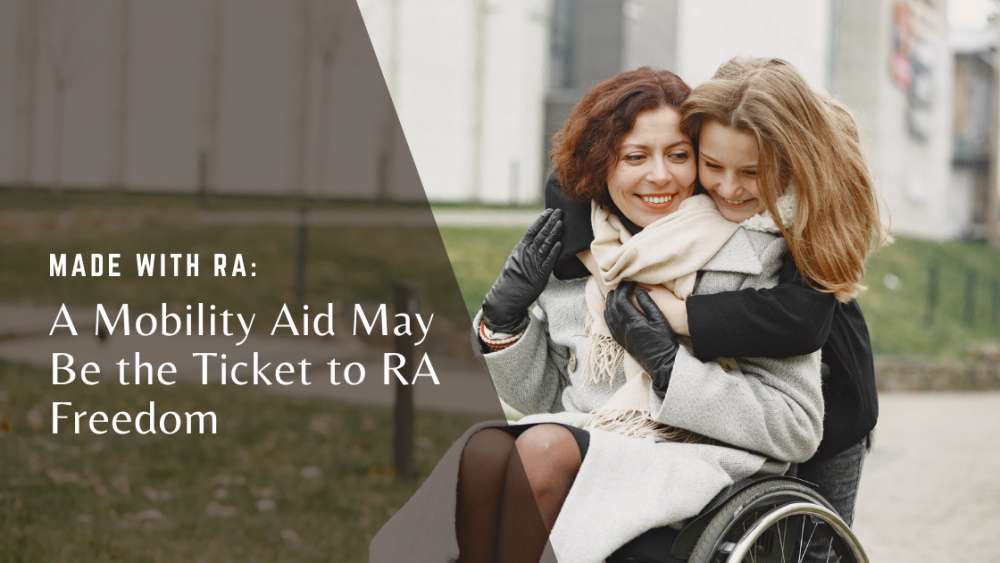Made With RA: A Mobility Aid May Be the Ticket to RA Freedom

If you’ve been wondering if it’s time for a cane or a wheelchair (and maybe hating the thought), my latest HealthCentral column is for you. A mobility aid can be your key to leaving the house and having a life:
“I WAS 16 years old the first time I used a power wheelchair and the moment is still vivid in my mind. I listened impatiently as someone told me how to use it, to push this button to turn it on, move this joystick to drive, wishing only that they would let me try, let me go. And then they stopped talking and I moved. Independently and on my own I drove the wheelchair away from the hospital bed in which I had spent the previous two years of my life, out of the room, out of the ward, leaving behind dependence, helplessness, and immobility. That chair was the key to me leaving the hospital and going home, joining my peers in high school and beginning to create a life.
When you have rheumatoid arthritis (RA), there may come a time when a mobility aid can be your key to leaving the house and having a life. Maybe you need a tool that can get you through every day; maybe it’s only for occasional bad days. Regardless of whether it’s a permanent or temporary situation, you may have an instinctive negative reaction to even thinking about it. Let’s talk about that.
Disability is heavily stigmatized in our culture, seen as something to be avoided at all costs. This ableist thinking tells you that using a cane or scooter may mean you’ve given up, that to use a wheelchair is a fate worse than death. Quite literally so—on multiple occasions, someone has said how much they admire me (apparently for no reason), yet also told me that they’d never be able to do what I do, that if they lost the use of their legs, they’d also lose the will to live.
To me, believing that a life is possible only if you can walk shows a profound lack of imagination, yet this thinking is so pervasive that even doctors may refuse to sign the forms needed for a mobility aid it because they see it as surrender. But a mobility aid is the very opposite of binding or confining, of giving up. It represents embracing freedom and independence. Without my wheelchair, I would be housebound or confined to bed. With it—and exactly because of it—I have done the big and the little things that make a life. I have gone to university, worked, taken long walks in the woods, bought groceries, visited new babies, danced at weddings, and said goodbye to my father. I have left the house alone and on my own steam, taken care of routine life tasks, and had grand adventures.”
Read more in my column on the benefits of getting a mobility aid on HealthCentral.
Tag: .disability, chgronic illness, chronic pain, mobility aid, rheumatoid arthritis, wheelchair
Read More
Discover what else I've been writing about...















